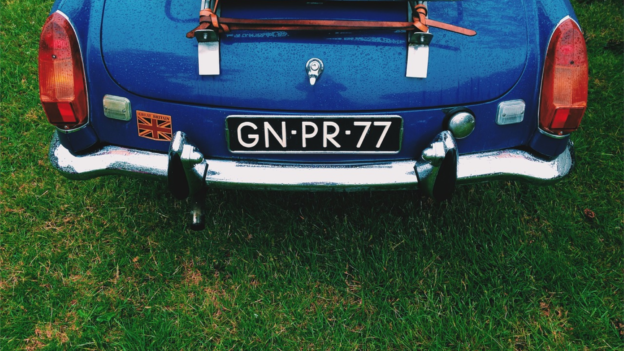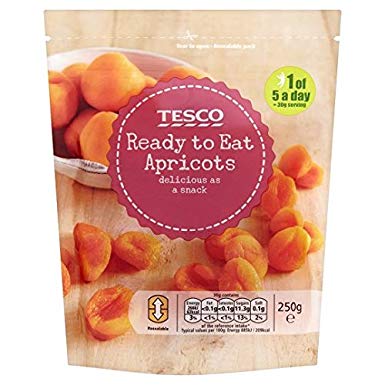A conversation with English comedian BJ Fox, who performs stand-up in Japan and has his own TV show on NHK. Our conversation includes the story of how BJ managed to pitch the show to Japanese producers, how he learnt Japanese to a proficient level, doing stand-up in a different culture and much more.
[DOWNLOAD]
Introduction
Hi everyone, welcome back to the podcast. It’s lovely to be talking to you again. I hope the feeling is mutual.
Let me tell you about this episode. So, this one is a conversation with an English stand-up comedian, living in Japan. He goes by the name of BJ Fox and he’s doing really well over there. He’s one of the top comedians on the English language comedy scene in Tokyo (which is a relatively big scene in fact) he also performs stand-up in Japanese, which is really cool because it means that his Japanese must be really good – he makes audiences of Japanese people laugh a lot in his shows. He has also performed stand-up in lots of other countries, especially across Asia but also in the UK and now he has his own sitcom on Japanese TV – on NHK, which is basically the Japanese equivalent of the BBC. So, he’s got his own TV show.
Now this is quite an extraordinary achievement – to get your own sitcom on Japanese telly. BJ writes the show himself and also plays the main character. So, how did he manage this? How did he get his own TV show? I mean, a lot of people move to other countries, manage to learn the language and live quite successfully there, but not everyone ends up with their own TV show. Also, how did he learn Japanese to such a high level? What’s it like doing stand up in Japan? What’s his TV sitcom all about?
BJ has also worked in the video games industry, including time spent at the Pokemon company and at Rockstar Games. I don’t know if you know Rockstar Games. They’re the ones who produce the Grand Theft Auto series and also the Red Dead Redemption series, and in fact BJ was one of the people responsible for bringing Grand Theft Auto and Red Dead Redemption to the Japanese market.
I spoke to BJ over Skype recently and asked him about all these things.
Sign up to LEP Premium to get a vocabulary / pronunciation episode based on this conversation – https://www.teacherluke.co.uk/premium
Before we listen, I just want to mention that I have published a premium episode covering specific vocabulary from this conversation. I went through the recording, picked out lots of vocabulary and in the premium episode I explain it, demonstrate it and also drill it for pronunciation. Those of you who are premium subscribers will have access to that in the app and on the website. It’s Premium episode 18 (parts 1 & 2) and I think you’ll find that listening to that episode (either before or after you listen to this converstion) will really help you understand everything much better, it’ll help you notice and pick up certain phrases and to practise saying them with all the correct, natural pronunciation, and all of that is a great way to maximise your learning potential with an episode like this. That’s what my premium episodes are all about.
So check out Premium series 18 – which accompanies this episode. It’s already available in the app and on the website. To sign up to LEP Premium just go to www.teacherluke.co.uk/premium and the best way to listen to premium content is by using the Luke’s English Podcast App. If you have any questions, just send me an email through my website or through the app.
Right then, let’s meet BJ Fox and find out about his stand-up, his career, how he learned Japanese and what it’s like having his own sitcom on Japanese TV.

Videos & Links
A clip from an episode of Home Sweet Tokyo.
Watch episodes of Home Sweet Tokyo on NHK’s website here.
BJ Fox’s Website where you can see more videos and find out his gig dates.
The Comedian’s Comedian Podcast – Stuart Goldsmith interviews some of the best comedians in the world in great depth and finds out exactly how they do their comedy.
Ending
That was BJ Fox then. I’d like to say thanks again to him for coming on the podcast. It was really interesting to talk to him.
I suggest that you have a look on the page for this episode on the website where you will find a clip from Home Sweet Tokyo, links to BJ’s website and also a link to The Comedian’s Comedian Podcast, which is absolutely fascinating for anyone interested in exactly how comedians do what they do – which is, basically, to make people laugh really hard until their faces hurt. It’s like actual magic, it’s amazing.
And don’t forget that I recently published a two-part Premium episode covering language from this conversation. If you haven’t done so already, sign up to LEP Premium in order to listen to that and maximise your English learning from this podcast. The episode covers vocabulary and pronunciation, so you can expand your range of English and sound more like a native speaker. Sign up at www.teacherluke.co.uk/premium .
I’ve also recently uploaded more little premium videos with pronunciation drills. They’re short videos in which I drill some sentences, you can see me saying the sentences, I highlight some features of pronunciation like sentence stress, weak forms and connected speech, you can see my mouth moving as I say them, you can copy me and also the target sentences are written on the screen with some features highlighted like the stress and the weak forms. Premium LEPsters – there’s a heads up. Check out the latest content – it’s there in the premium category in your app, and also online at teacherluke.co.uk/premium . There should be more content coming this month.
A bit of a ramble
Recent episodes
Basically, it’s been great to get some nice feedback from listeners. The 2 episodes with James (Oasis, Do you ever…?) have had great responses. People really enjoyed them. I am lucky to have a brother who I get on with most of the time, and we make each other laugh a lot. I’m glad if that comes across on the podcast and that you can join in the laughter too.
The Emina episode – I’m very happy that lots of you found it inspiring and also that you found lots in common with her. I think it’s always interesting to speak to people who have learned English to a proficient level, and to try to work out how they did it.
The Rick Thompson Report is always popular – people often say that this is how they get informed about Brexit. Even some of my friends who are native speakers of English listen to those episodes. The UK’s general election is due to happen on 12 December (Thursday) and I would like to record something about that after the results are in. My Dad will hopefully be up for it, but I can’t guarantee it. It depends if we find the right time to do it. December is shaping up to be an extremely busy month.
I haven’t finished the 3-part series about “88 Expressions that will confuse everyone” – the series about very British expressions and slang. I do plan to finish that. I promised you 88 expressions and so far I’ve given you 50. So I owe you another 28. Check out my maths!
Also, the episode about terrible jokes went down well, so I do plan to do more of that kind of thing. Basically, we’re going to keep on trucking here at LEPHQ. I say “we” – it’s mainly just me, isn’t it? With a little help from my friends and family of course, who join me as guests sometimes and of course the support I get from you my listeners in the form of donations (thank you thank you thank you if you’ve donated) and also just the fact that you are loyal listeners, that you recommend the podcast to your friends, leave glowing reviews on places like iTunes (LEP is simply sensational, there’s no other word for it). So thank you for the support.
Crazy strikes in France
Emmanuel Macron (the French president) is currently attempting to reform pension laws here. I don’t fully understand it, but because of this, a lot of workers across many sectors are protesting and going on strike at the moment and it looks like the strikes are going to continue throughout December, which could make life extremely difficult here. It already is, in fact. The main problem is transport, but this has some major knock on effects in other areas. Almost all the public transport is closed – The Metro, busses, train lines, trams, and in Paris that makes a huge difference because almost everyone relies on it to an extent. So this means that loads of other things are affected. Lots of people can’t get to work and it causes a lot of general chaos. For us the main problems are the creche and our travel plans at Christmas.
The daycare centre (creche) for our daughter could be closed for the next couple of weeks, so my wife and I will not be able to work like normal. We’ll have to stay at home with the little one. Now, I’m not complaining – it’s always lovely to be able to spend time with her and I can walk to school when I have lessons to teach. Also, I have some sympathy with the people who are on strike but this could seriously affect my podcast output this month because while I’m looking after my daughter I can’t really do anything else, including podcasting.
Update: Our daughter is being looked after for a few days by her grandparents, leaving us free to concentrate on work we need to do before Christmas. But it’s only for a few days – so I have to cram all my content creation into these next few days. So I will be locked in the Pod-Castle, making episodes as quickly as I can!
Luke – tell us what happened yesterday, as an example of the travel chaos gripping the city.
Also it could affect our travel plans to the UK for Christmas, so everything is up in the air at the moment. The main thing for you is that it might be difficult for me to prepare, record and upload all the content I’m planning for the next few weeks, and that includes the annual Christmas episode (which this year is going to be about Christmas jokes), perhaps one other free episode of the podcast which I haven’t worked out yet, maybe a Star Wars episode if I get to see Episode 9 when it is released here on 18 December, also I’m planning another premium audio series and more premium pronunciation videos. That’s quite a lot of content but I will be off on holiday during the Christmas period so I want to publish or prepare quite a lot of content before that, but I might not be able to do anything. We will see what happens and whether we can find childcare for the little one.
Anyway, let’s see how much I can get done in the time I have. It might just be that I have to do some late night or early morning podcasting, or perhaps no podcasting at all. We will see. But I just wanted to let you know, in case you get radio silence from LEP later this month.
But now it is time to wish you all a warm farewell until next time. Check out the LEP App if you don’t already have it, check out LEP Premium, sign up to the mailing list on the website, follow me on Twitter, have a look at the page for this episode for all your BJ Fox info and I will speak to you again soon I hope, but for now it’s just time to say GOODBYE!












 Ready-to-eat apricots
Ready-to-eat apricots